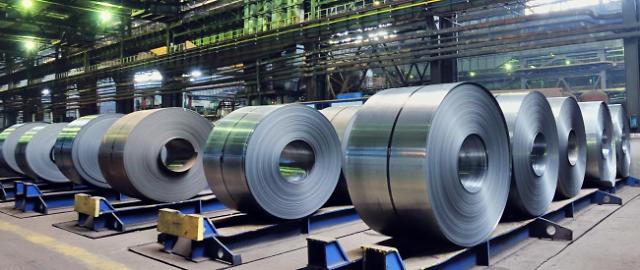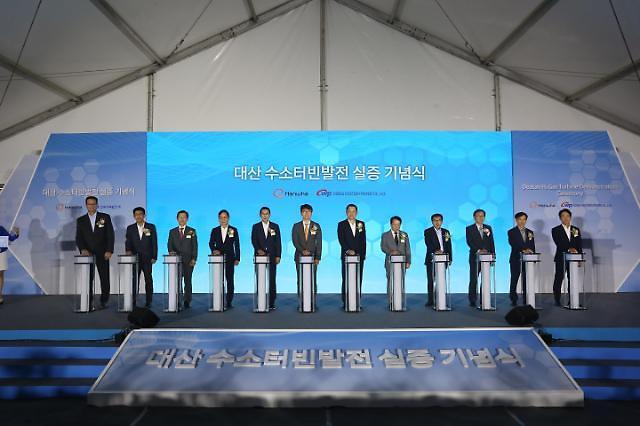
[Courtesy of Posco]
South Korea's two top steelmakers, Posco and Hyundai Steel, are under pressure from provincial governments and environmental groups to reduce the emittance of air pollutants by installing anti-pollution equipment or face administrative disadvantages such as the forced shutdown of furnaces.
Posco has nine blast furnaces in Pohang and Gwangyang, while Hyundai Steel runs three Dangjin. They have opened bleeder valves regularly during the maintenance and safety inspection of blast furnaces to discharge water vapor and gas created by burning coke, a porous fuel with high carbon content used to heat smelting furnaces.
Every furnace has four bleeders at the top of its chimney. It is opened once every two months to maintain constant pressure and prevent explosions or fire. When a bleeder valve is open, blast-furnace gas is released to the atmosphere. The untreated gas contains particulates and, therefore, represents a potential source of air pollution.
No official measurement or analysis has been made on pollutants emitted through bleeders. However, Posco and Hyundai Steel were ordered from provincial governments to install anti-pollution facilities that would greatly reduce the emission of fine dust and other air pollutants such as nitrogen oxides and sulfur oxides.
Hyundai Steel received administrative measures on May 30 to shut down its steel mill in Dangjin for 10 days. Hearings are to be held after Posco was given the prior notice of administrative action calling for the suspension of steel mills for 10 days.
Steel company officials feel embarrassed because the regular opening of bleeder valves has been an international practice. Blast furnaces should operate without a break to prevent molten metal from hardening, they said, adding that if furnaces are suspended for more than four days, it will take three months to resume operation.
"For now, we have no technology other than to open bleeders," Hyundai Steel President Ahn Dong-il told reporters on Wednesday, suggesting it is a vexed issue to be solved through cooperation among international steel company officials and engineers.
Provincial government officials prioritized the health and environmental rights of residents, urging steel companies to fulfill their social responsibility, take anti-pollution measures more vigorously than before and forget outdated logics. They stressed that bleeders should open automatically in an abnormal situation, not artificially during regular repair work.
Fine dust, which refers to particles smaller than 10 micrometers and causes various respiratory problems, has been a stringent social issue since Seoul and nearby areas were hit by a record level of fine dust for days in early March. President Moon Jae-in has ordered the gradual shutdown of old fossil-fueled power plants in an effort to reduce fine dust emissions.
A World Health Organization (WHO) report, presented at the 2018 UN Climate Change Conference in Bonn, showed that 9 out of 10 people breathe air containing high levels of pollutants and that around seven million people every year die from exposure to fine particles in polluted air.
The figure could be far surpassed by deaths caused by rising global temperatures and extreme weather if emissions, primarily caused by the burning of fossil fuels and deforestation, are allowed to rise at their present rate.


![[OPINION] US political turmoil reflects our wider society – in 2024 and earlier elections](https://image.ajunews.com/content/image/2024/03/28/20240328080320147882.png)
![[OPINION] Assessing the trajectory of Chinas Economy: Growth or decline](https://image.ajunews.com/content/image/2024/01/31/20240131173956149557.jpg)
